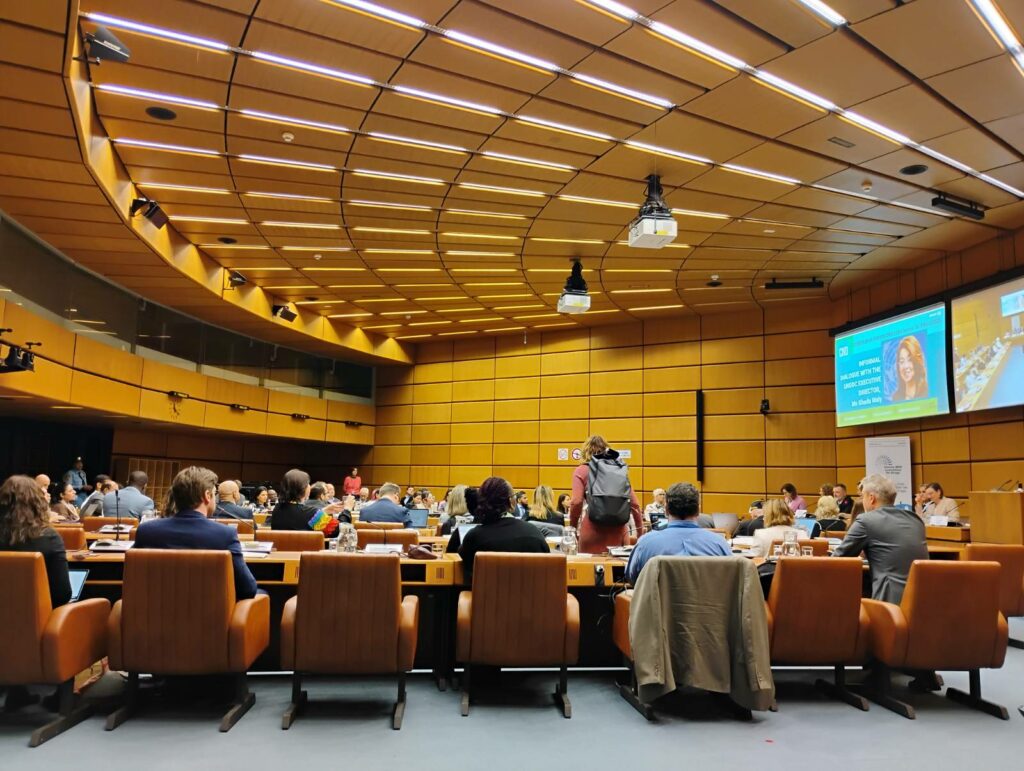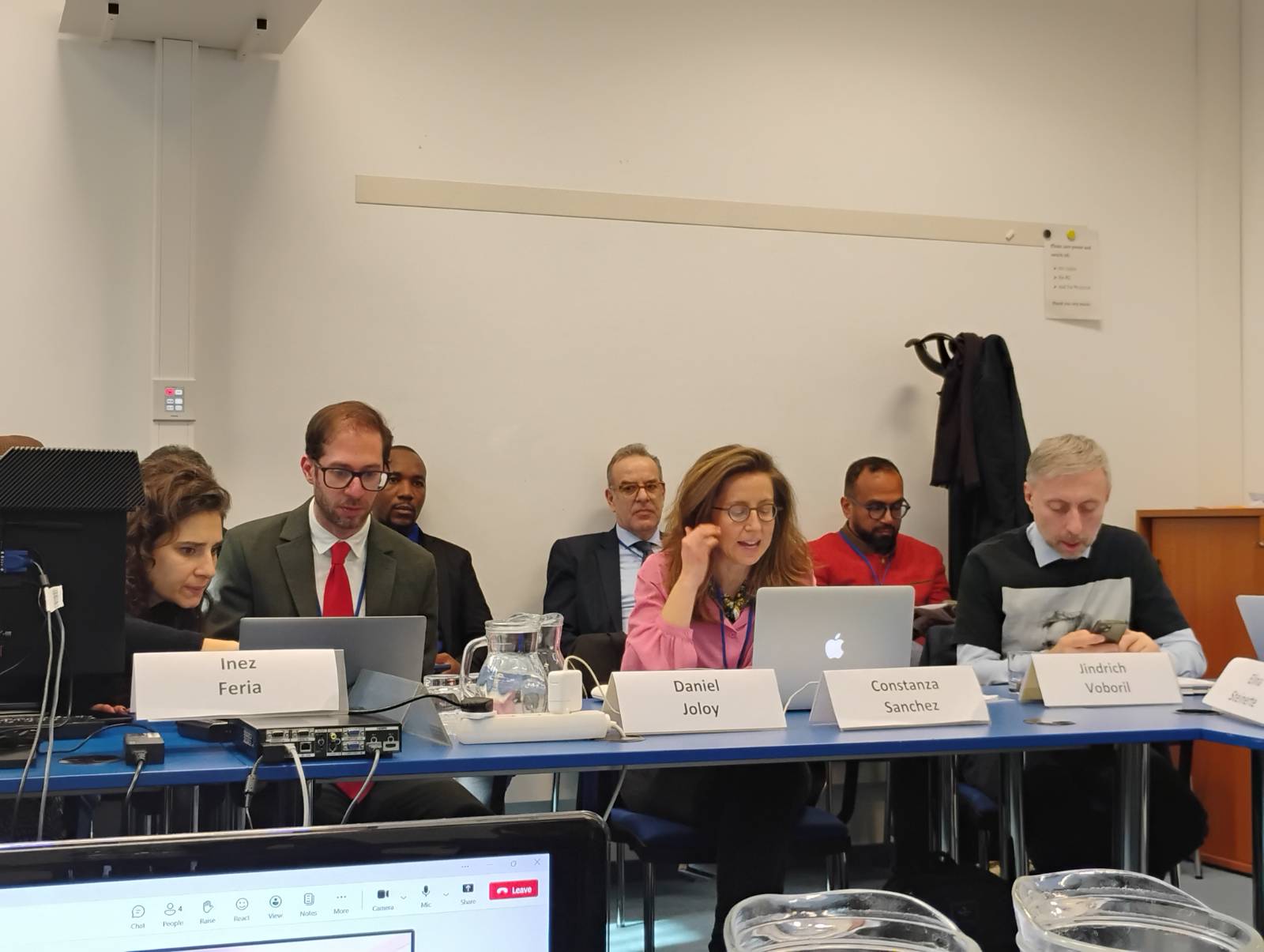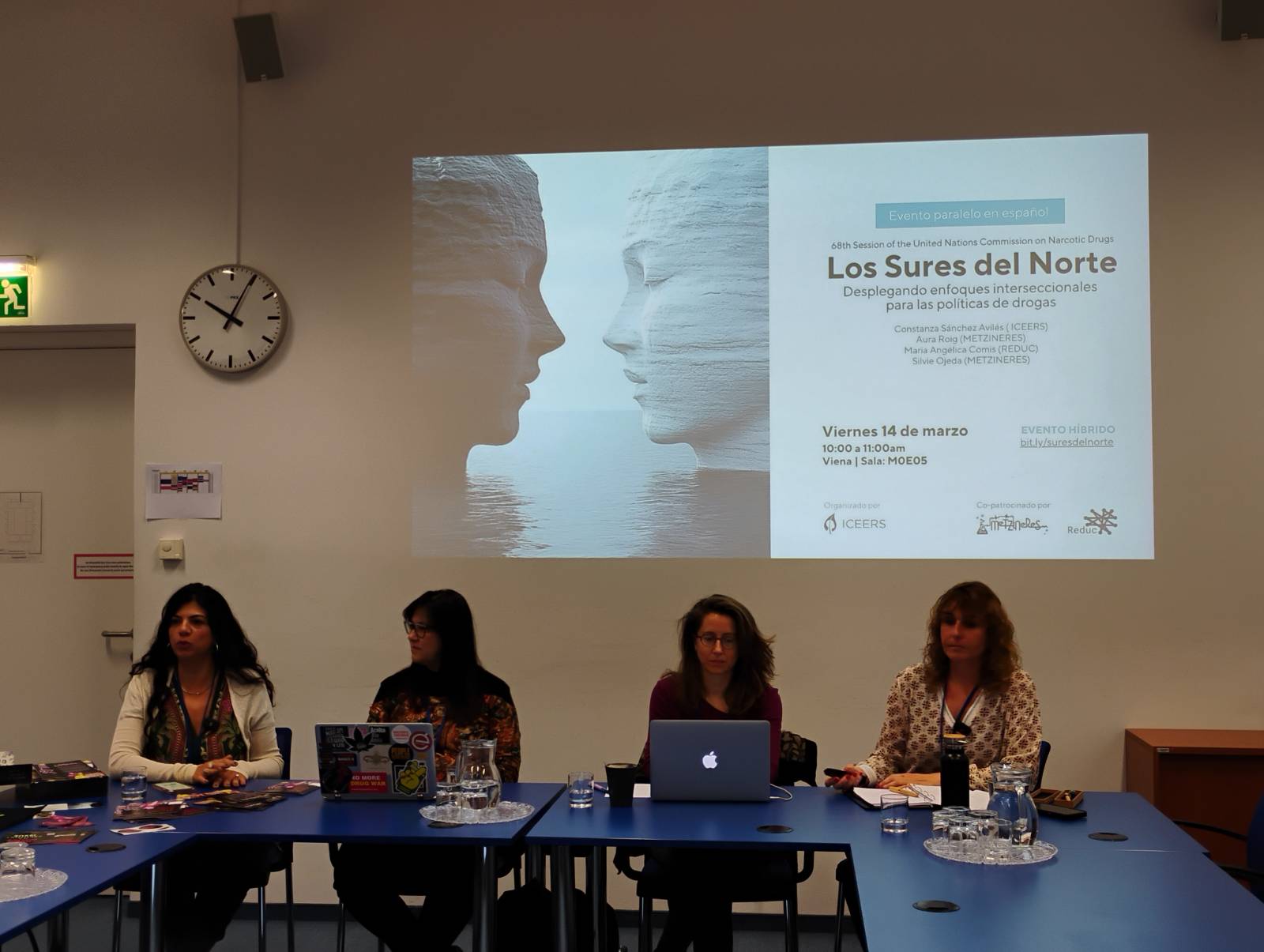ICEERS | March 31, 2025
The 68th session of the United Nations Commission on Narcotic Drugs (CND) took place between March 10th and 14th. An event in which governments, international organizations and civil society meet to review and follow up on the international drug control treaties, outline drug policy guidelines, and share new challenges and opportunities. ICEERS was once again able to participate in this space as an organizer and co-organizer of various side events, as well as making our contributions in several informal dialogues. Each CND session is an opportunity to showcase the work we do on the ground, and an opportunity to contribute to the global debate, providing data based on practice and reality, and helping to balance the more generalized, abstract and fragmented nature of the political debate that underpins the decision-making during those days.
Despite the progress made, many issues remain blocked by the punitive and prohibitionist approach that still prevails in the Commission on Narcotic Drugs and other related bodies. However, in recent years small cracks have opened up in the system, especially in relation to the recognition of the cultural and medicinal value of the coca leaf and the incorporation of harm reduction strategies in drug policies. A hopeful example of this CND edition has been the approval of the resolution promoted by Colombia, which requests the creation of a group of experts to review the current international control system. This step constitutes an explicit recognition of the need for structural transformation and the urgency of integrating more inclusive and realistic perspectives in decision-making on a global scale.

Dialogues for transformation
On Tuesday March 11, ICEERS co-sponsored an event, led by TNI, entitled “The Coca Leaf in the UN Treaty System: A Pending Issue,” in which OHCHR and IDPC also participated. Hernán Vales, Head of the Indigenous Peoples and Minorities Section of the OHCHR, Senator Julio César Estrada of Colombia, Pedro Arenas (Viso Mutop), Estela Ramos (Bolivia) and Ricardo Soberón (Peru) shared various impressions from their territories on the process of reclassification of the coca leaf that is currently taking place in the World Health Organization.
On Thursday, March 13, Constanza Sánchez participated in the side event “Breaking the Cycle of Impunity: Improving Efforts to Ensure Human Rights Compliance in Drug Policies,” organized by Amnesty International and co-sponsored by ICEERS, OHCHR, IDPC, IHRA, NoBox, Di-Sentir AC and the governments of Switzerland, the Czech Republic, Colombia and Brazil. Our Director of Law, Policy and Human Rights shared ADF’s experience in supporting the defense of people prosecuted for their relationship with traditional plants, with a closer look at the cases of coca leaf that have been supported in Spain. Jindrich Voboril (Czech Republic), Inez Feria of NoBox Philippines and Elina Steinerte of the Subcommittee on the Prevention of Torture also participated in the event.

Intersectional approaches in the Commission on Narcotic Drugs
Finally, on Friday the 14th, ICEERS organized another parallel event, together with Metzineres and the Rede Brasileira de Redução de Danos (REDUC). Entitled “The Souths of the North: deploying intersectional approaches in drug policies,” this panel proposed to subvert the meaning of that label, which, far from being given to certain countries because of their geographical location, carries an associated burden that attributes to them a series of challenges and vulnerabilities, which are observed (and judged) from a North that considers it has the capacity to help and “educate” the South.
Moving away from this stigmatizing vision, it was claimed that this “being and existing from the margins” characteristic of the South should be understood as an opportunity to seek solutions from different and complementary perspectives. This idea challenges us directly at a time when the future of traditional medicines runs the risk of being defined solely in terms of the interests and needs of certain countries, or of certain ways of understanding the world. In this sense, and drawing a parallel, ICEERS advocates for the need to include the voices and knowledge from the margins, which in this process of globalization of psychedelics refers to the knowledge of indigenous communities, which runs the risk of being exploited from the practice, while reviled from the dominant Western gaze.
The Souths of the North inspires us, in the words of Silvie Ojeda, Communications Director of Metzineres, “to recognize resistance as a place of creation,” an idea that reinforces ICEERS’ mission to build bridges between perspectives and knowledge systems, between disciplines, and between cultures, to give rise to a more inclusive reality.
Categories:
EVENTS
, NEWS
, HUMAN RIGHTS
Tags:
United Nations
, Human Rights
, drug policy
, traditional medicine
, coca
, Commission on Narcotic Drugs

